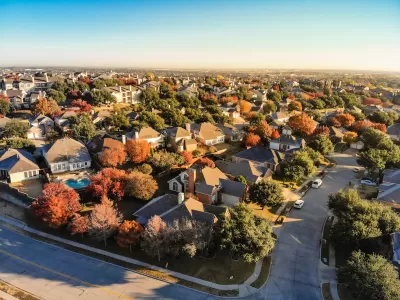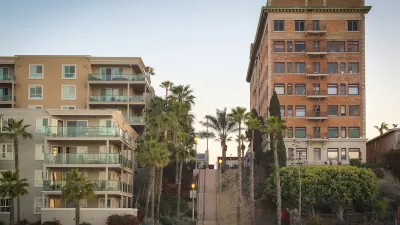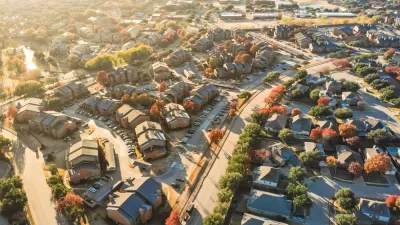Proposals to boost housing production through ‘gentle density’ increases face strong opposition from residents concerned about losing single-family neighborhoods.

Writing in D Magazine, Matt Goodman describes the combative mood at a recent Dallas City Council meeting, when council members strongly repudiated efforts to adjust the city’s zoning regulations to boost density and include more duplexes and other ‘middle housing’ types.
According to Goodman, an analysis “found a gulf of 33,600 rental units for individuals who make 50 percent of the area’s median income, which, based on analysis of Census labor data, includes more than one third of the city’s residents.” With the Dallas area becoming increasingly unaffordable for many residents, “City staff are tackling one of the things that could help impact the supply: allowing more than one unit of housing on lots that presently can hold only one.”
Yet sentiments against upzoning run high, and “Dallas is nowhere close to making such a decision,” and even proposals to permit accessory dwelling units (ADUs) in the city have met with strong pushback. City staff insist the goal is to promote “context-sensitive, gentle-density” that takes into account existing neighborhood character. However, Goodman notes, “What was clear after Tuesday is that they will have to win a fight before they can even begin to research ways to achieve this goal.”
FULL STORY: In Dallas, the Argument Over Single-Family Zoning Heats Up

Planetizen Federal Action Tracker
A weekly monitor of how Trump’s orders and actions are impacting planners and planning in America.

Congressman Proposes Bill to Rename DC Metro “Trump Train”
The Make Autorail Great Again Act would withhold federal funding to the system until the Washington Metropolitan Area Transit Authority (WMATA), rebrands as the Washington Metropolitan Authority for Greater Access (WMAGA).

The Simple Legislative Tool Transforming Vacant Downtowns
In California, Michigan and Georgia, an easy win is bringing dollars — and delight — back to city centers.

The Small South Asian Republic Going all in on EVs
Thanks to one simple policy change less than five years ago, 65% of new cars in this Himalayan country are now electric.

DC Backpedals on Bike Lane Protection, Swaps Barriers for Paint
Citing aesthetic concerns, the city is removing the concrete barriers and flexposts that once separated Arizona Avenue cyclists from motor vehicles.

In These Cities, Most New Housing is Under 441 Square Feet
With loosened restrictions on “micro-housing,” tiny units now make up as much as 66% of newly constructed housing.
Urban Design for Planners 1: Software Tools
This six-course series explores essential urban design concepts using open source software and equips planners with the tools they need to participate fully in the urban design process.
Planning for Universal Design
Learn the tools for implementing Universal Design in planning regulations.
Smith Gee Studio
City of Charlotte
City of Camden Redevelopment Agency
City of Astoria
Transportation Research & Education Center (TREC) at Portland State University
US High Speed Rail Association
City of Camden Redevelopment Agency
Municipality of Princeton (NJ)





























